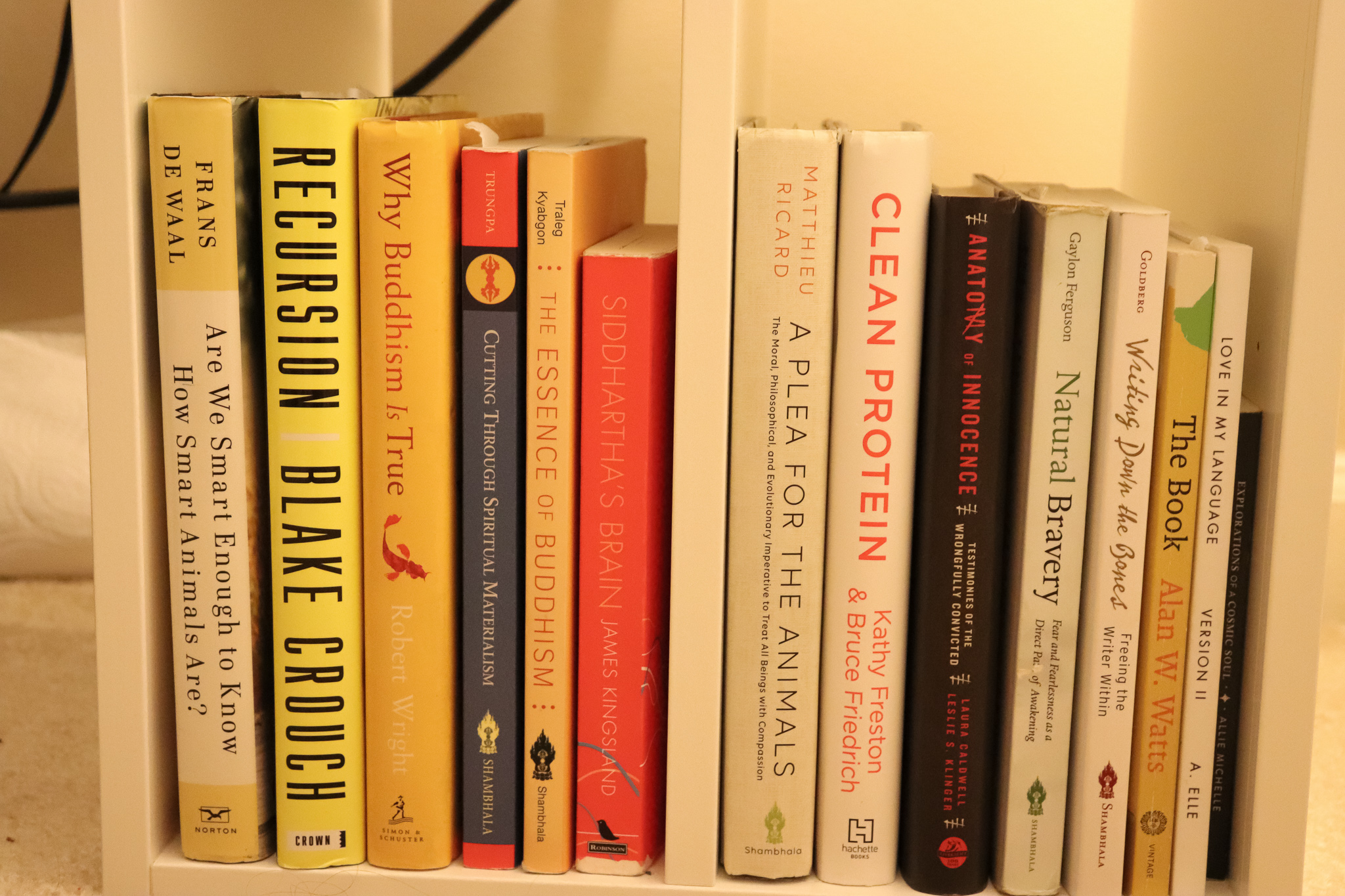When’s the last time you read a book that completely shifted your perspective on something? A book that changed the lens with which you see the world? I call such books paradigm-changing, because that’s just what they do—change your paradigm of a particular topic.
I’ve read quite a few books in 2019 that have altered my perspective: books that have made me text a reading list to my friends in the hopes that they’ll experience the same shift I have. Here’s the most updated version of that listed: the top six books that changed my mind in 2019.

Sapiens: A Brief History of Humankind by Noah Harari
My friends and I like to joke that there are two types of people in the world: those who have read Sapiens and those who haven’t. Seriously though, this book is not only filled with hidden fact gems that will make you want to read paragraphs out loud to your roommates, but it gives a much-needed context for our global society. Harari asks the question: why us? How did a small species of primate grow to establish the hyper-connected society of today, and develop the technology to destroy the environment in the process? Whether or not you agree with Harari’s answer to that question, you’ll definitely find Sapiens a thought-provoking read.
Recursion by Blake Crouch
For my friends who want to get lost in a novel, Recursionis one of my new favorites. This sci-fi thriller explores themes of memory, identity, and reality through captivating characters and a gripping, ever-twisting plot. The first chapter brings you right into the action and the story only continues to escalate from there. Warning: I would suggest only starting this book when you’ve budgeted some uninterrupted reading time.
Digital Minimalism by Cal Newport
In October, I embarked on a digital declutter and took conscious steps to reduce my technology use, resulting in huge improvements in my quality of life. Reading this book was pivotal to changing my digital habits. By promoting the philosophy of digital minimalism, Newport provides a refreshing solution to our collective technology problem, suggesting that technology should be neither worshipped nor demonized but used only to the extent that it can add value. You’ll learn how to evaluate your own technology use and identify how to add value to your life using digital tools – and then ditch all the habits that drain you. I talk about this book to everyone I meet (literally) – implementing the philosophy of digital minimalism will raise your quality of life, I’m certain.
Why Buddhism is True by Robert Wright
To understand the world, we first need to understand our own minds – this is an intuition that both Buddhism and psychology have in common. Evolutionary psychology Robert Wright melds the two, interpreting foundational Buddhist ideas about why we suffer through a psychological perspective. Reading Why Buddhism is True launched my interest in evolutionary psychology as well as deepened my spiritual practice. (Read this article about the evolutionary sources of suffering – drawing on the book!)
Cutting Through Spiritual Materialism by Chogyam Trungpa
If you’re interested in walking a spiritual path, Cutting Through Spiritual Materialism is a must-read. Trungpa encourages us to reflect on why we feel called down a spiritual journey, and enumerates common “mistakes” (from the perspective of Western Buddhist philosophy) practitioners make when beginning a spiritual journey – including the ways we grasp and cling to “spiritual” identity. This book will call attention to your materialistic tendencies, and may just change the way you think about spirituality as a whole (at least, it did for me!)
Deep Work by Cal Newport
The knowledge economy increasingly values deep work – focused, cognitively demanding tasks (think: writing, creating software, learning a new skill set, etc.) – while common workplace practices serve to discourage deep work. Have you ever spent a busy workday day responding to emails only to find at the end of it that you’ve produced nothing of value? Newport examines this apparent asymmetry and gives strategies for incorporating deep work into your work routine to become more efficient and productive. I feel grateful to have read this book early in my career, and I’ve implemented a few of Newport’s strategies into my workday with great success.
I hope these books are as thought-provoking for you as they were for me! Virtual book club, anyone?
What books have changed your mind?




